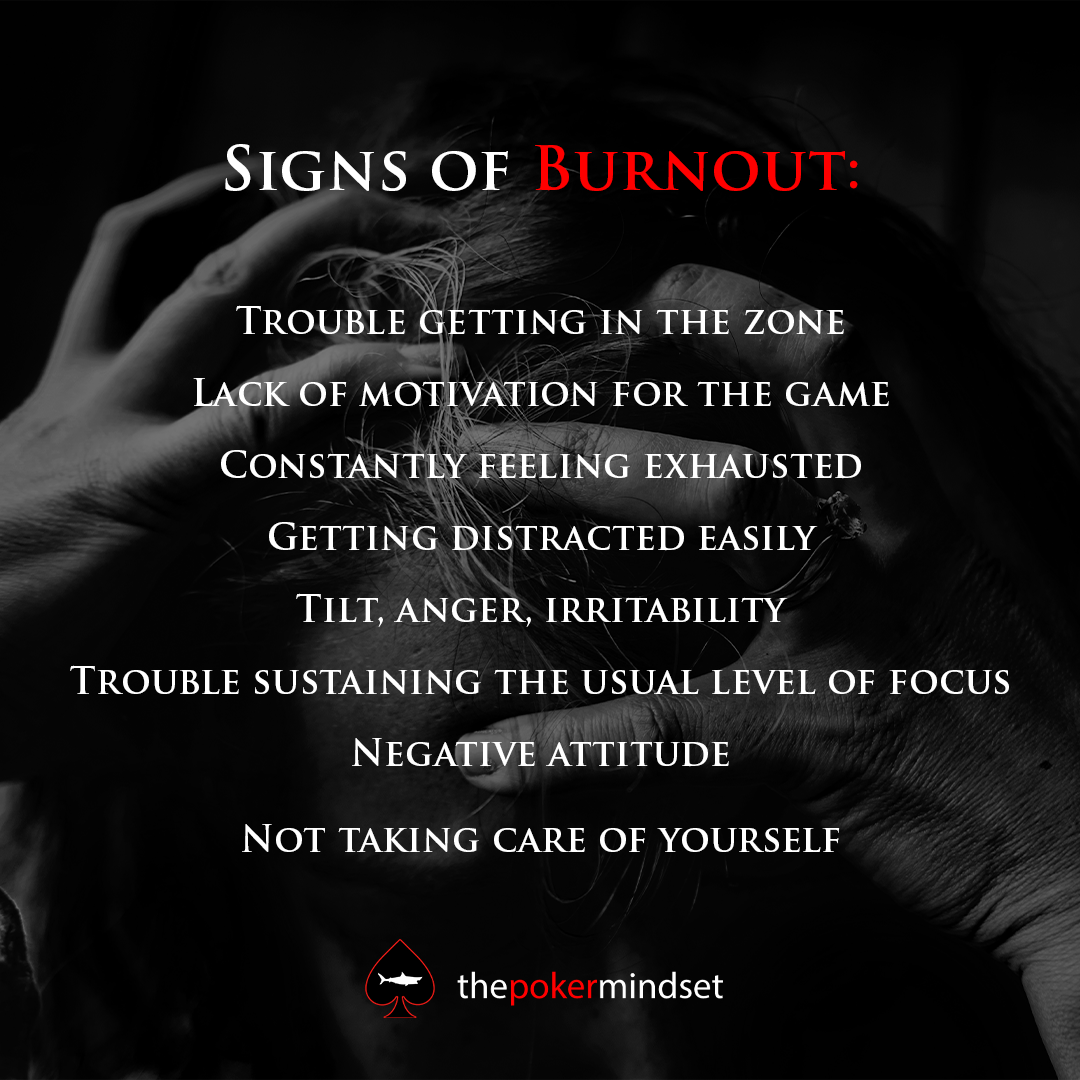If you are constantly feeling demotivated, exhausted, angry and in a negative emotional state you may be on the road to burnout. Burnout is a state of emotional, physical, and mental exhaustion caused by excessive and prolonged stress.
Here are some signs of burnout. Pay attention to these symptoms so you can prevent burnout.
1. Trouble getting in the zone
The most important sign of burnout for poker players is the trouble of getting and staying in the zone. You may find that you get distracted much easier or you get bored much faster and can’t wait to end the session.
2. Lack of motivation for the game
When you don’t feel so enthusiastic about poker anymore or you no longer have that internal motivation to play and to improve your game, there’s a good chance you’re experiencing burnout. Even if you absolutely love poker it can happen from time to time. Try finding out what’s causing it, maybe your personal life is taking up more energy, than usual or maybe you are just bored. Things you can do to stay motivated are: take regular breaks, do something interesting, limit your use of digital devices during off-hours or reflecting on your WHY.
To overcome a burnout remember WHY you play poker. You are most motivated by knowing WHY you do things. Having a strong WHY is what gets you through the hard times. Clearly defining and identifying this WHY is crucial for long-term poker success.
3. Constantly feeling exhausted
A clear sign of burnout is feeling tired all the time. If getting out of bed in the morning or starting playing or studying poker is more demanding than normal, you could be tiptoeing into burnout territory. Keep in mind that you’ll not only deal with a lack of energy physically, but you can also feel emotionally drained.
4. Tilt, anger, irritability
Another sign of burnout is when you start tilting much easier or faster than usual. Sometimes during a burnout even one lost pot is enough to bring out a lot of negative emotions and throw you off from your A-Game.
During burnout you might have more interpersonal problems, such as getting into more conflicts with others or avoiding and talking less to family members and friends. Sometimes even when you’re physically with them, you might be tuned out.
5. Trouble sustaining the usual level of focus
Burnout has a negative effect on your ability to pay attention or concentrate. Other times poker used to bring you joy, you couldn’t wait to start a session and play, now you find yourself looking at your clock or phone, changing the playlist and being on auto-pilot, completely out of the zone.
6. Negative attitude
Negativity is another one of the dimensions that characterize burnout. You start your sessions with a pessimistic attitude, you feel that you are always getting sucked out, never hitting anything good, and when you do everybody folds. Another sign of cynicism is when there seems to be no point to anything, no sense of accomplishment anymore. What used to fuel you—winning, ambition, challenge, even money—seems meaningless.
7. Not taking care of yourself
During burnouts some people engage in unhealthy coping strategies like drinking too much coffee or alcohol, smoking, being too sedentary, skipping workouts, eating too much junk food, not eating enough or not getting enough sleep.
Note: Do you want to avoid burnout, to learn how to get in the zone and about what’s holding you back in achieving your goals, to learn how to control tilt and how to have a positive attitude at the tables? Check out Elliot Roe’s course: A-Game Poker Masterclass. Learn more now!


